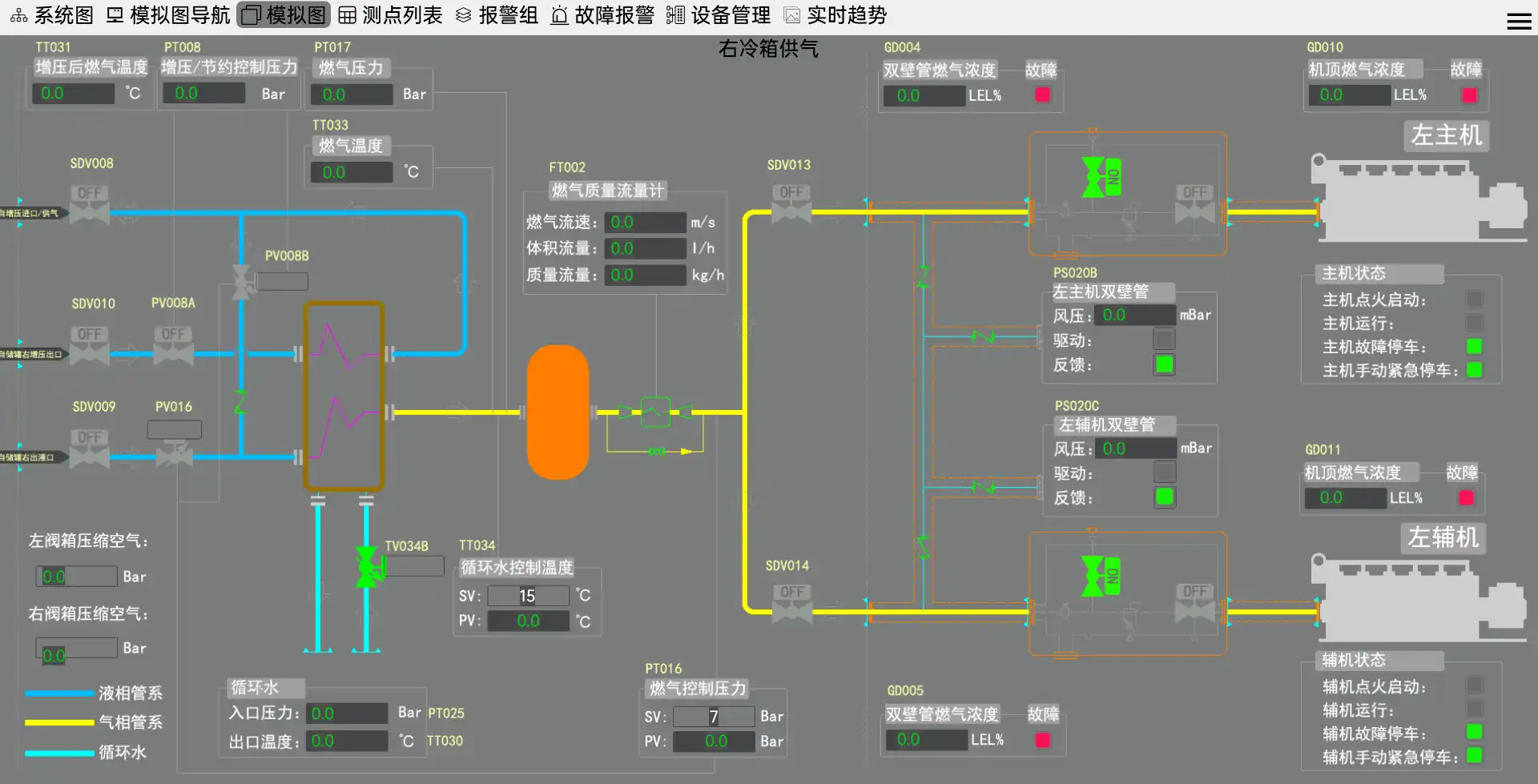With a focus on innovation and sustainability, TSC offers both high-pressure and low-pressure fuel supply systems tailored to the specific needs of chemical tankers and gas carriers. These systems are designed to integrate seamlessly with existing vessel infrastructure, ensuring optimal performance and compliance with international maritime regulations.

Environmental Benefits of LNG in Maritime Transport
Reduced Emissions and Improved Air Quality
The adoption of LNG as a marine fuel brings substantial environmental advantages. When compared to traditional marine fuels, LNG significantly reduces emissions of sulfur oxides (SOx), nitrogen oxides (NOx), and particulate matter. This reduction in pollutants not only helps shipping companies meet stringent environmental regulations but also contributes to improved air quality in port cities and coastal areas.
Lower Carbon Footprint
LNG offers a notable reduction in carbon dioxide (CO2) emissions compared to conventional marine fuels. The LNG Fuel Supply System enables efficient combustion of natural gas, resulting in lower greenhouse gas emissions per unit of energy produced. This makes LNG an attractive option for chemical tankers and gas carriers looking to reduce their carbon footprint and contribute to global efforts in combating climate change.
Compliance with IMO 2020 and Future Regulations
The International Maritime Organization's (IMO) 2020 sulfur cap and upcoming regulations on greenhouse gas emissions have accelerated the adoption of LNG as a marine fuel. TSC's advanced LNG Fuel Gas Supply Systems ensure that vessels not only comply with current regulations but are also well-positioned to meet future environmental standards, providing a long-term solution for sustainable shipping operations.
Retrofitting vs. Newbuilding: LNG Fuel System Installation
Retrofitting Existing Vessels
For shipowners with existing fleets, retrofitting vessels with LNG Fuel Supply Systems presents a viable option to transition to cleaner fuel without the need for complete fleet replacement. TSC offers customized retrofitting solutions that can be implemented during scheduled dry-docking periods, minimizing operational downtime. The retrofit process involves careful planning and engineering to integrate the LNG fuel system with the vessel's existing infrastructure, ensuring optimal performance and safety.
Advantages of Newbuild LNG-Powered Vessels
While retrofitting is a practical solution for existing vessels, newbuild ships designed specifically for LNG propulsion offer several advantages. These purpose-built vessels can incorporate the latest advancements in LNG fuel technology, including optimized tank placement, improved fuel efficiency, and enhanced safety features. CM Energy's expertise in designing and manufacturing state-of-the-art LNG Fuel Gas Supply Systems makes it an ideal partner for shipyards and owners investing in new LNG-powered chemical tankers and gas carriers.
Cost Considerations and Long-Term Benefits
The decision between retrofitting and newbuilding depends on various factors, including vessel age, operational profile, and long-term fleet strategy. While the initial investment in LNG fuel systems may be substantial, the long-term benefits in terms of fuel cost savings, regulatory compliance, and environmental performance often justify the expenditure. TSC's team of experts can provide comprehensive analysis and guidance to help shipowners make informed decisions based on their specific operational and financial requirements.
Safety Measures for LNG Bunkering Operations
Advanced Safety Features in LNG Fuel Supply Systems
Safety is paramount in LNG bunkering operations, and TSC's LNG Fuel Supply Systems incorporate advanced safety features to mitigate risks associated with handling cryogenic fuels. These systems include multiple layers of redundancy, automated emergency shutdown capabilities, and sophisticated leak detection technologies. The design of these systems prioritizes the prevention of LNG release and the containment of any potential leaks, ensuring the safety of crew members and the vessel.
Training and Operational Protocols
Implementing LNG as a marine fuel requires comprehensive training for crew members involved in bunkering operations and system maintenance. TSC provides extensive training programs and develops detailed operational protocols tailored to each vessel's specific LNG Fuel Gas Supply System configuration. These programs cover all aspects of LNG handling, from bunkering procedures to emergency response, ensuring that crew members are well-prepared to operate the system safely and efficiently.
Collaboration with Port Authorities and Bunkering Facilities
Safe LNG bunkering operations require close collaboration between vessels, port authorities, and bunkering facilities. TSC works closely with stakeholders to develop standardized bunkering procedures and safety protocols that align with international best practices. This collaborative approach helps to establish a robust safety culture across the LNG supply chain, from production and distribution to onboard storage and utilization.
Call to Action: Embrace the Future of Maritime Fuel with CM Energy
As the maritime industry navigates towards a more sustainable future, CM Energy stands ready to lead the way with innovative LNG fuel solutions. Our advanced LNG Fuel Supply Systems offer unparalleled efficiency, safety, and environmental performance for chemical tankers and gas carriers. With a proven track record of successful installations and a commitment to ongoing innovation, we provide the expertise and technology needed to transition your fleet to cleaner, more sustainable operations. Don't let your vessels fall behind in the race to meet environmental regulations and reduce operational costs. Contact CM Energy today to explore how our LNG fuel solutions can propel your fleet into a greener, more profitable future.
For more information on our LNG Fuel Supply Systems and how we can support your transition to cleaner marine fuels, please contact us at info.cn@cm-energy.com. Our team of experts is ready to provide personalized solutions tailored to your fleet's specific needs.
